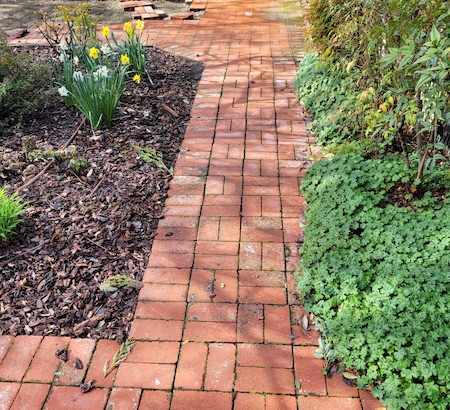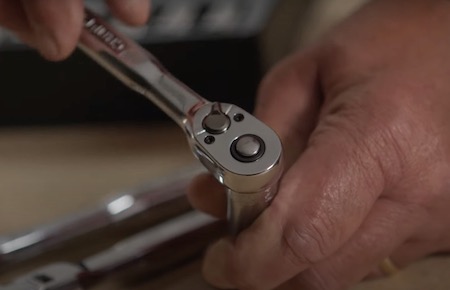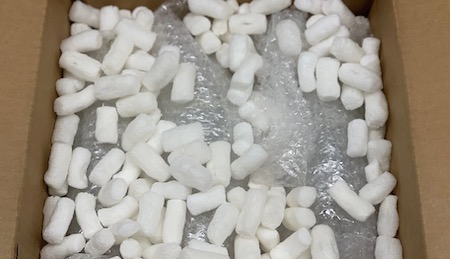Many years ago when I was working at Google, some of the executives were upset about how difficult it was to share things. It’s supposed to be easy to share content online, but instead users were faced with links that didn’t work when clicked, opaque terms like “unlisted” that they didn’t understand, sharing menus that differed across products, and numerous options that required a PhD to decipher. Our head of product design declared that we needed “Sharing That Just Works” -- quick, intuitive, as private as desired, and transparent. We had weekly updates on “STJW” to discuss and vet improvements. It was a lot of fun, and we did make online sharing better.
But I was recently reminded of the value that real-world sharing can provide. It is easy to forget about the co-benefits of the sharing economy. So I want to relate a few stories and see if you’ve had any good experiences with encouraging reuse in this way.
I am doing some yard work this spring -- planting a mulched-over lawn, replacing some drought-intolerant plants, and putting plants in areas that have long been bricked over. I realized I had around 1200 bricks to remove, and recalled a friend who loved finding used building materials for her home projects. So I offered the bricks up on Nextdoor and got a few responses. I asked people how many they needed, and once I had 1200 worth of requests, I asked the bigger participants to come at certain times so it wouldn’t get too busy. I shared out the schedule and reminded people to bring some sort of wagon or cart.

The pickups went great and were even kind of fun. Some people brought friends or family members, their kids or their moms. Most brought some kind of cart or wagon. When one guy looked like he was struggling without a cart, I found a wagon in our garage that he could use. Everyone was polite and efficient, carefully counting their bricks so they didn’t take too many. They were also very friendly. Some shared stories of their projects, inquired about my yard work, reminded me about rebates, warned about different types of irrigation, etc. One couple that was picking up 400 bricks had removed seats from their van so it could carry the load (slowly). Another person taking only a few bricks was particularly interested in the strangely shaped ones, and was happy to find a variety of wedges. Another group filtered out any bricks that were not exactly 4 x 8 and set them aside in a pile for others who might want them. The guy who borrowed my wagon was careful to wash it down and help me put it back.
It was just a nice afternoon that put a smile on my face. I was describing this to my daughter a few days later and she said “Yes, I think we really miss out by not doing more of this. It’s a very human thing to share. People have extra or need a little more. We used to do more of that.” We get locked into our silos of consumption and miss out on a human connection.
A couple of weeks later I needed to put together a bench. My toolbox was stolen a few years ago so my tool selection is kind of anemic. I needed a thin stamped wrench, a socket wrench, and a square drill bit. I first went to the hardware store, but they didn’t have the thin wrenches, I didn’t feel like buying a socket wrench, and I couldn’t find the square drill bits. So I thought, maybe I’d ask my neighbors.

My next door neighbor wasn’t home, but the one two doors down had the two wrenches. I sent out an email on our neighborhood email list asking about a square drill bit, and got a number of helpful replies. For example. “Hi Sherry: I have every tool imaginable. Text me at xxx for details.” I went to pick up a drill bit from one neighbor and not only got the tool but also got a bunch of advice. For example, he pointed out that I wanted a really tight fitting bit to avoid stripping the screw and reminded me to press hard on the drill. We also chatted about electric appliances, home updates, etc. It was much nicer than the visit to the hardware store, though it took a little longer to set up.
Then earlier this week a friend came by and told me that her sister had sent a bunch of her mom’s old glassware, packed in a big box with lots of bubble wrap and other packing material that she couldn’t recycle. She wasn’t sure what to do with it, but she packaged it up and advertised it and lo and behold someone wanted it. She was grinning ear to ear when she told me this story. It is a win-win situation, or really a win-win-win -- for the gifter, for the receiver, and for the planet.

There are even more mundane things that happen. Yesterday I was in Safeway next in line to check out, and the cashier was insistent that the shopper in front of me use a Safeway card to get a discount, but he didn’t have one. So the cashier asked if I’d share mine, and I said sure. The shopper, an older Asian man wearing a mask, seemed a little bemused, but appreciated saving some money, the cashier was happy, and I was glad to play my part. This also left me with a little smile, and I think the guy in front of me was smiling too, though hard to tell.

I guess the point is, when it feels like our social ties are being frayed and online forums are fanning the flames, finding ways to connect in the real world can be unexpectedly nice. As shopping moves online and transit vanishes and restaurant dining declines as people work from home, there are fewer ways for us to overlap, acknowledge our shared reality, and form unofficial communities (e.g., “people who take the 7am train”). So consider a win-win-win and give the sharing economy a try. Starting with … any good sharing stories to share?
Current Climate Data (February 2023)
Global impacts, US impacts, CO2 metric, Climate dashboard
Comment Guidelines
I hope that your contributions will be an important part of this blog. To keep the discussion productive, please adhere to these guidelines or your comment may be edited or removed.
- Avoid disrespectful, disparaging, snide, angry, or ad hominem comments.
- Stay fact-based and refer to reputable sources.
- Stay on topic.
- In general, maintain this as a welcoming space for all readers.



